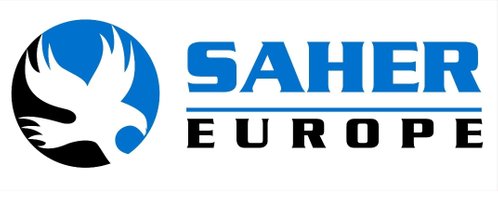The CO2 reduction potential of shore-side electricity in Europe
Abstract: Shore-side electricity can drastically reduce the emissions from fossil fuel-powered auxiliary engines of ships at berth. Data scarcity on the auxiliary power demand at berth has limited the scope and temporal resolution of previous studies to few ports and ships.
Authors: Boris Stolz, Maximilian Held, Konstantinos Boulouchos
Abstract: Shore-side electricity can drastically reduce the emissions from fossil fuel-powered auxiliary engines of ships at berth. Data scarcity on the auxiliary power demand at berth has limited the scope and temporal resolution of previous studies to few ports and ships. We establish a novel method to estimate the auxiliary power demand at berth for 714 major ports in the European Economic Area (EEA) and the United Kingdom (UK). Therefore, emission report data from the Monitoring, Reporting and Verification scheme of the European Union and ship tracking data from the Automatic Identification System are combined.
Annual emissions of 3 Mt (/ 5 Mt) CO2 could be avoided if the auxiliary power demand at berth would be supplied from national grids (/ from CO2-neutral electricity). This equals an average reduction of overall shipping emissions by 2.2% (3.7%), and requires only 0.2% (6.4 TWh) of the current electricity generation capacity of the EEA and the UK. Using shore-side electricity from the grid can also contribute to substantial annual local air pollution reductions of 86,431 t NOx, 4,130 t SOx, 1,596 t PM10, 4,333 t CO, 94 t CH4, 4,818 t NMVOC, and 235 t N2O.























.png)










.png)

























Previous
Next
Navigating through dense waters: a toolbox for creating maritime density maps
A Big Data framework for Modelling and Simulating high-resolution hydrodynamic models in sea harbours
Modelling and simulating vessel emissions in real time based on terrestrial AIS data
Real-time maritime anomaly detection: detecting intentional AIS switch-off
A comparison of supervised learning schemes for the detection of search and rescue (SAR) vessel patterns
BigDataOcean Project: Early Anomaly Detection from Big Maritime Vessel Traffic Data
Countering Real-Time Stream Poisoning: An Architecture for Detecting Vessel Spoofing in Streams of AIS Data
Determining the bilge water waste risk and management in the Gulf of Antalya by the Monte Carlo method
FleetMon Supports the Development of Environmental Impact Assessment on the Brazilian Coast
Scrapping Probabilities and Committed CO2 Emissions of the International Ship Fleet
Scalable In-Database Machine Learning for the Prediction of Port-to-Port Routes
How a real-time-based sea traffic forecast helps to organize and optimize the flow of maritime goods
Generating a node in an AIS-based routing graph for improved Estimated Time of Arrival. (Big) Data challenge: using AIS for generating a routing graph
Composition, spatial distribution and sources of macro-marine litter on the Gulf of Alicante seafloor (Spanish Mediterranean)
Climate change, non-indigenous species and shipping: assessing the risk of species introduction to a high-Arctic archipelago
The Big Picture: An Improved Method for Mapping Shipping Activities
GMSA: A Digital Twin Application for Maritime Route and Event Forecasting
Patterns of Life : Global Inventory for maritime mobility patterns
Require AIS data for your project?
Please reach out to us to discuss which Kpler offering will support your research project or academic study in the best possible and efficient way.




